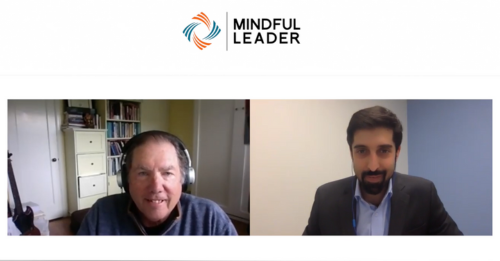How to be Mindful of McMindfulness

In recent years, the practice of mindfulness has gained significant popularity, offering individuals a seemingly effective means of managing stress and finding inner peace. However, a critical examination of this phenomenon, known as McMindfulness, reveals how the practice has been commodified, diluted, and marketed as a panacea for all of life's challenges. Coined by Miles Neale, McMindfulness sheds light on how mindfulness has been reduced to a mere self-help tool, tailored to suit the demands of a neoliberal ethos within a capitalist economy. This article delves into the concerns raised by McMindfulness and explores its implications on society, calling for a shift towards a more socially and politically engaged approach.
Mindfulness as a Superficial Solution:
At the heart of the McMindfulness critique lies the belief that the prevailing practices of mindfulness fail to address the complex social, political, economic, and structural factors that contribute to stress and suffering. McMindfulness perceives stress as an individual problem, dismissing the wider systemic influences that shape our well-being. By relegating the causes of stress to the realm of personal responsibility, it overlooks the collective aspects that perpetuate such issues.
The Commodification of Mindfulness:
McMindfulness draws attention to the alarming trend of commodification and mass commercialization of mindfulness. The practice has been repackaged and marketed as a lifestyle choice, now commonly referred to as "capitalistic spirituality." With the veneer of scientific validation, mindfulness has become a lucrative industry, replete with branded products, apps, and courses that promise a quick fix to life's challenges. This capitalistic co-opting of mindfulness threatens to dilute its true essence and transform it into a mere consumer product.
The Irony of Stress-Inducing Solutions:
One of the poignant ironies highlighted by McMindfulness is the dissonance between organizations inducing stress on their employees and subsequently offering mindfulness solutions to alleviate it. While companies embrace mindfulness as a corporate wellness strategy, they often fail to address the underlying causes of stress within their own structures and practices. This perpetuates a cycle where stress is created and then packaged as a product, reinforcing the need for individuals to seek external remedies rather than challenging the root issues.
Revamping Mindfulness Education:
In order to counter the pitfalls of McMindfulness, proponents advocate for a reimagining of mindfulness education. Rather than viewing mindfulness as a purely individualistic therapeutic endeavor, it is proposed that the curriculum be redesigned to incorporate critical thought and analysis. This would invite practitioners to examine the broader social, political, and economic factors that contribute to stress and suffering, fostering a deeper understanding of the interconnectedness of human experiences.
Expanding from Individual to Collective Attention:
Central to the McMindfulness critique is the call for a shift from an individualistic approach to mindfulness towards a more socially and politically engaged model. While individual well-being remains crucial, it is argued that mindfulness should also extend beyond the self, encouraging collective attention and active engagement in social and civic matters. By broadening the scope of mindfulness to include social and political dimensions, it has the potential to become a catalyst for positive change, not only for individuals but also for society as a whole.
Conclusion:
The concept of McMindfulness presents a thought-provoking critique of the current state of mindfulness practice, highlighting its reduction to a marketable commodity within a capitalistic framework. By addressing the limitations of McMindfulness, there is an opportunity to redefine and reshape mindfulness as a tool for personal and collective transformation. By embracing a more socially and politically engaged approach, mindfulness can transcend its current limitations and become a force for positive change in an increasingly complex world.
Want to see more insightful talks from Mindful Leader? Visit our YouTube page to watch more and make sure to subscribe so you never miss a new one!
Welcome to our Wackfulness: The unexamined, sometimes silly, side of Mindfulness series, here we delve into critical thinking, alternative perspectives, and exposing collective blind spots in our field. While occasionally provocative, our intention is never to insult or disrespect beliefs. Join us for an honest debate where we aspire to grow and stay true to our shared intention. (note - thanks to some community feedback we have renamed the series Wackfulness, not to confuse our older readers with Whackfulness, we also have recategorized a collection of articles over the last four years that were the foundation for the launch of this series. You can go back and read all articles here if you are finding this exploration of interest)

2 comments
YESSSSSSS!!! Thank you for calling out the trend of McMindfulness and capitalist spirituality. While on the surface, corporate wellness programs look like a good idea, they're only entrenching the dysfunction leaders refuse to change, and blame the victim. I'm so grateful my own somatic training had social justice and ecology built in. Enthusiastically reposting!
yeeeeeees لعبة بادل
Leave a comment